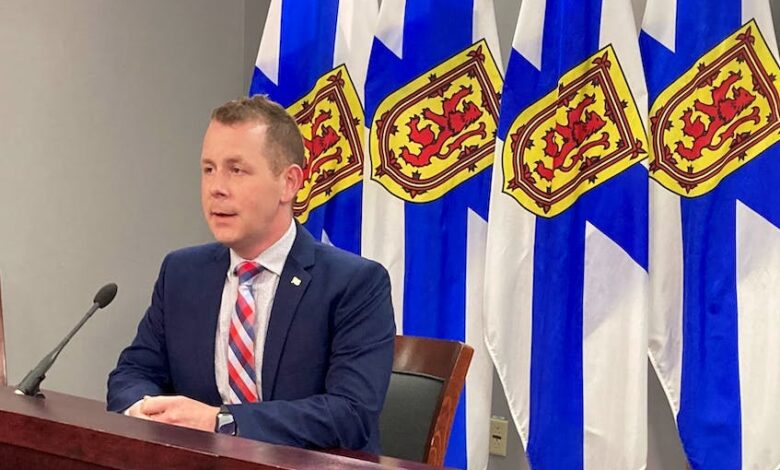Power rates increase in Nova Scotia, but there are programs to help

By the time Nova Scotia residents cleared the cobwebs from New Year’s revelry, they found themselves on the hook for a power cost increase that will amount to an average of $11 per month.
“The most important thing is to make sure people are aware of programs that help them pay their bills now,” said Brian Gifford, chairman of the Affordable Energy Coalition (AEC) that is made up of more than a dozen groups and agencies across the province committed to equitable and universal access to energy.
Gifford pointed to the Heating Assistance Rebate Program, which can provide low and moderate-income Nova Scotia a $600 rebate if applied for by the March 31 deadline, the Home Energy Assistance Top-up and the seniors care grant.
“Also, it’s really important that they get efficiency upgrades that will save them money in the long term,” Gifford said. “If they are low and modest income, they can apply for Home Warming, which gives them free upgrades that will save up to $1,800 a year on their energy costs, and that includes oil and/or electricity, by supplying free insulation and free heat pumps.”
Gifford said homeowners who don’t qualify for those free upgrades because of their income level can apply for Greener Homes Grants to help them pay for those upgrades. That federal grant program is ending on March 31, he said.
On Feb. 2, 2023, the Nova Scotia Utility and Review Board (UARB) approved NSP’s general rate application (GRA) settlement that was supported by customer and consumer advocates, representatives from the municipal utilities, Dalhousie University, as well as advocates for the environment (Ecology Action Centre) and low-income customers (the AEC).
The UARB decision equated to a compounded rate increase for residential customers of 14.17 per cent over two years, 2023 and 2024, the first 6.9 per cent hike taking effect to coincide with the UARB decision and the second 6.8 per cent hike to come into play on Monday, the first day of 2024.
Renters could face an additional cost hike in the wake of provincial government legislation passed in April that will set the rent cap for 2024 and 2025 at a five per cent increase, up from the temporary cap of two per cent that had been in place since November 2020, the height of the pandemic.
Rent cap
A five per cent increase on rent of $1,500 per month would mean an increase to $1,575 and critics say landlords had already been regularly using fixed-term leases as a loophole to escape the cap.
“The key message is that there are ways for people to get help and they should get that help,” Gifford said of both homeowners and tenants.
“Every bit does make it harder but it is important to realize that oil costs are much more volatile and much more expensive than electricity costs,” he said of a power hike that could increase the average two-month bill by about $20 to $22.
“We always focus on electricity because it’s regulated but oil costs jump all over the map, they were a $1.90 a litre in September but now they are about $1.60 a litre and some of the low-cost fuel places are $1.35 a litre but it always costs more than electricity, especially if you are using a heat pump.
“The main message is not to focus on your increase but to focus on what we can do about it.”
Gifford is a member of the province’s Energy Poverty Task Force, a 20-person group committed to delve into what can be done. The task force consists of representatives from three provincial government departments and 12 other organizations, including the AEC, the Ecology Action Centre, the CLEAN Foundation, NSP, Efficiency Nova Scotia and the Oil Heat Association, “people who are dealing with this stuff in a long-term way.”
Looking at opitons
The committee first met in September and has been getting together about once a month since. The group gathers local information and is engaging an expert from the United States, who has helped design programs in Ontario and various U.S. jurisdictions.
“What we’re trying to do is come with a more systematic way to help low- and modest-income households with their energy bills so it could end up with a credit on your bill if you are lower income, which means your bill would actually be lower, rather than getting a cheque in the mail,” Gifford said.
The electricity bill would be tied to both income and energy use, he said.

“In Ontario, they tie it to your family size and your income and in a lot of the American programs they tie it to how much energy you use.”
The goal in most jurisdictions is to cap energy bills at about six per cent of before-tax income.
The committee hopes to have a set of recommendations ready to present to government by the end of February, suggesting ways to make energy more affordable for struggling Nova Scotians.
Nova Scotia Power will conduct a survey with Narrative Research about energy use and energy affordability that will help facilitate the committee’s work, he said.
“We are very strongly in favour” of making the recommendations public, he said. “Certainly, at some point they (recommendations) will be public, hopefully as soon as they are ready or maybe the government will be given a couple of weeks to look at it.
“Those details haven’t been looked at yet.”
The ultimate goal for the committee is legislative or program changes to make energy more affordable for low- and moderate-income Nova Scotians.




